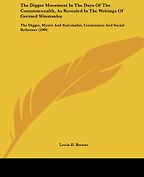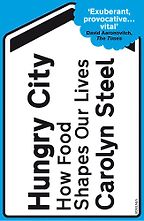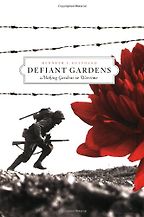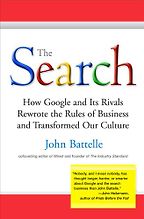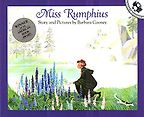Before we talk about your book choices, can you tell me about guerrilla gardening?
Guerrilla gardening is technically known as illicit cultivation on someone else’s land. But for me, and everyone else involved, we’re very much looking at neglected public land, which we then transform into something more beautiful – through plants, flowers and vegetables. This is something which has taken off all over the world. Although it’s illegal the police have nearly always turned a blind eye to my activities and, as you can imagine, the public response is always very positive.
I’m intrigued by the first book on your list. Are these people the forefathers of guerrilla gardening?
Yes, I think in some ways they are. This is Lewis H Beren’s book about Gerrard Winstanley and the Diggers. They were around in the wake of the Civil War in the 17th century. Charles I had just been executed and English society was being reinvented. There was a big debate going on about land ownership.
Winstanley worked out that a third of the country was common land. People had grazing rights but not cultivating rights and he didn’t think that made sense, given the rise of food prices and the abundance of space. So he decided to start gardening on the common land and growing veg with other local men. But, for him it went beyond just growing and harvesting food. He was after something more political. He wanted a currency-free state. In fact he was a communist before the word even existed. These days his legacy is most visible in Moscow where he is commemorated on an obelisk outside the Kremlin.
There’s also another book I’d like to mention which relates to that. Garden Cities of To-Morrow was written around the same time as Beren’s book. The author, Ebenezer Howard, is looking at Utopia and he has a very detailed plan of precisely how to get there. He writes about the ideal city having something like 30,000 people. He says all they need is common land which could sustain them both in their immediate area and near by. So he is thinking of a low density green city. He felt you could have the best of the city and of the countryside in that kind of arrangement. Sadly, he could never completely realise this with his projects such as Letchworth Garden City and Welwyn Garden City because there were always disputes about the ownership of the land.
Howard was writing almost 100 years ago and I think his ideas are still relevant to us today. It’s a reminder that we need to think about where our goods come from, and the amount of land we need to sustain a community and who owns that land.
What about your next book, Hungry City: How Food Shapes our Lives.
Carolyn Steel carries on the theme of how we use land. She deals with the very current concern that cities today are not sustainable because the hinterlands from which they are fed are running out. The trail that food has to take is enormous and also not sustainable.
What Carolyn Steel does is give a fascinating historical perspective. You realise that these problems are nothing new. For example during the Roman Empire there were huge food miles importing oysters from Whitby in England to the well-to-do in Rome. What I found particularly refreshing about her book is that although the concept isn’t new, the idea of looking at the problem historically is.
But is she offering solutions as well as history?
Yes, definitely. First she gets us talking and thinking about these things. Food for her is something that can bind together what are otherwise rather disparate disciplines. For example she looks at architecture, geography, planning and the environmental movement. If we can use food as the subject on which to have these debates when we chat at the dinner table and in our daily lives then we can we can solve some much bigger problems that seem a bit abstract or disconnected. Food binds all this altogether.
Your next book has an intriguing title, Defiant Gardens: Making Gardens in Wartime.
Yes. This book is inspirational because it’s a collection of stories about how people have created gardens in the midst of war. That includes soldiers on the Western Front building little gardens among their trenches when they got a moment of peace, or the ghettos in Eastern Europe during the Second World War. It shows the power and the need and the hunger for gardens as a respite from the horrors of war.
Has this inspired you with your guerrilla gardening?
Very much so: even though I live in relatively peaceful South London, there are similarities. There may be lots of things people can do to try to find their humanity and escape from the horrors of one’s everyday life, whether that is fighting on the Western Front or fairly dreary monotonous living. But gardening is something that you can turn to simply with a bit of scrappy land in front of you and saving a few seeds from your food. Other escapes or calming activities are often more inaccessible. As a guerrilla gardener I am constantly trying to point out to people that the land is just there. That bit in your street or the traffic island is there. You might not have thought about it before, but you don’t need to escape on some rural vacation – just take advantage of what is around you.
I have to say I’m a bit bemused by your next book, The Search. What’s the history of Google got to do with guerrilla gardening?
Well, the internet is a huge landscape and it’s up to us to plant it with ideas. It’s a wonderfully democratic space, unlike the physical landscape around us. I read this book because it was recommended by a colleague at work and I was inspired to really make the most of the internet. I realised that in parallel with doing the gardening I could also plant my ideas prominently on line. My blog is there to inspire other people and it’s a very straightforward assertion that what I am doing is not to be hidden away and disguised. The beauty of the internet is that you can make a public statement without having to send it to anyone.
Guerrilla gardening is ideally suited to the internet because it’s a lot of disparate individuals or small groups generally active on a very small scale. But cumulatively, through the power of the internet bringing them together, it becomes something more tangible. And this book really helped me put my plan into action. What’s good is that the author brings it all to life in a gripping romp – part history of Google’s success and also a manual on how the web works.
Your final book, Barbara Cooney’s Miss Rumphius, is actually for children.
Yes, I’d love to say that I read this as a child and it’s stayed with me every since, but that would be a lie. I was told about it by an American who had read my website. He actually went to the trouble to send it to me through the post. Although it’s not very big in the UK it’s very well known in the States. The book is the life story of a little girl who grows up and travels around the world. And everywhere she goes she sows lupins. As an old lady she is lying in her bed and she looks outside and sees that the countryside is covered in beautiful lupins. I encourage parents to read it to their young children to inspire them to get out there and take an active role in caring for and creating their local environment. I grew up with a trail of biscuits leading to a wicked witch’s cottage in Hansel and Gretel. In some ways this is the positive version of that.
December 10, 2009. Updated: June 20, 2025
Five Books aims to keep its book recommendations and interviews up to date. If you are the interviewee and would like to update your choice of books (or even just what you say about them) please email us at [email protected]
Five Books interviews are expensive to produce. If you've enjoyed this interview, please support us by donating a small amount.
